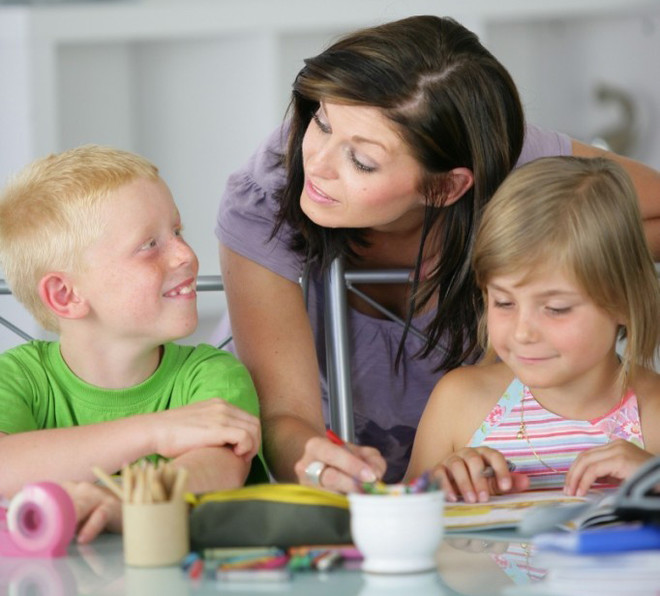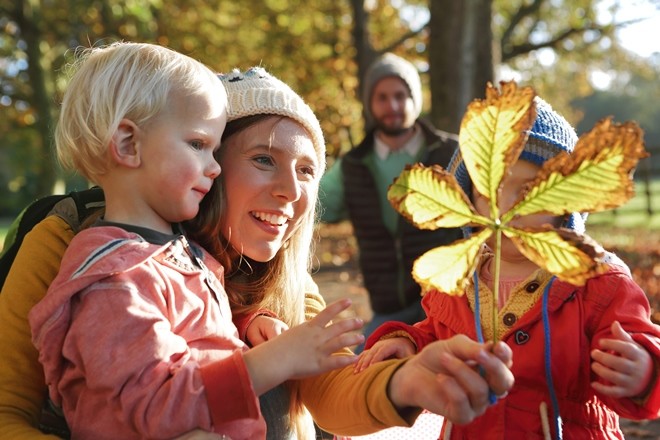Notching words will not help. Just take it for granted. Remember how they taught themselves verses: if you memorize mechanically, immediately after the lesson from the verse in your head there will be no rhyme left. It is best to develop a child's vocabulary during the game. In such verbal games you can play anywhere: on the way to a kindergarten, to school, to a store, in transport, for a walk. As soon as you notice that the kid's attention began to switch to extraneous objects, stop the game. Continue the next time. It should be fun. And we will offer you several options for such lexical fun. Photo: firestock
Photo: firestock
1. "What did I make up?"
"I see ..." And you begin to describe what you aresee: round or square, red or green. The child should, as you know, guess. Use new words for the baby, do not be shy. Here he and savvy will need, and curiosity will be where to manifest. Just play one by one - he guessed, now it's your turn.
2. "Who is the last word for?"
This game well helps the development of the dictionaryadjectives. Here it is necessary to describe as much as possible the qualities of the subject that you choose together. For whom will be the last word, who called more epithets (explain at the same time what an epithet is), he won.
3. "Looking for details"
Let the child's dictionary acquire not only the names of objects, but also their parts and parts. For example: "Here is the house. What does he have? "" The walls, the windows, the door, the staircase ... "
4. "What happens ..."
Ask the child: "What is cold?"" Snow, ice, ice cream ... "Or:" What is high? "" Mountain, tree, man ... "The questions can be a lot: what happens to white? Fluffy? Heavy? Smooth? Round? ..
Antonyms and synonyms
To begin, explain to the child that synonyms are"Words-friends" (car-machine, brave-bold), and antonyms are "enemy words" (good-evil, day-night). During this game you make a guess, and the child should be called a synonym (in the game with antonyms - antonym). To be fair, change roles.
6. Add a word
The goal of this game is to select verbs. You call the beginning of some action, the child - its ending (and vice versa). For example: - Katya woke up and ... (began to wash) .- Kolya did his homework and ... (went for a walk) .- The dog saw a cat and ... (ran after her). Photo: GettyImages
Photo: GettyImages
7. "What does it look like?"
This game will help develop not only the dictionarystock, but imagination. Show the child to the cloud and ask what it looks like. You can fantasize by looking at the crown of trees, a snowdrift, a lantern - yes to anything.
8. "Logical chain"
For this game, you will need cards. But they will not be needed to buy them - just a few clippings from magazines. The result is a collection that can be constantly updated. The essence of the game - from randomly selected cards laid out in a line, you need to compile a coherent story. Yes, it's this test that the child will be offered in the school, when you go to the first class. With it, check how much the kid is ready to learn. You can complicate the task and thus develop more and memory. In this case, the cards will need to be flipped over, and the kid remembers their sequence and composes the story. The older the child, the more pictures. Despite the apparent complexity of the game, children like this kind of entertainment.
9. "My Report"
You and the child have been on a trip, intheater, on excursions or just walked in a new interesting place. Ask him to compose a report about his journey. As illustrations, you can use photos. Let the child choose what to tell about, without leading questions. By the way, thanks to this you will find out what was best in his memory, what impressed him. If the child starts to fantasize, do not stop. The child's speech develops regardless of whether real or fictional events are reproduced to them.
10. "Change the story"
During this game, ask the child to changea fairy tale familiar to him. You start to tell, as it is written in books, but at some point everything should go completely in a different scenario. How? Let your child dream up (help first). Read also:









